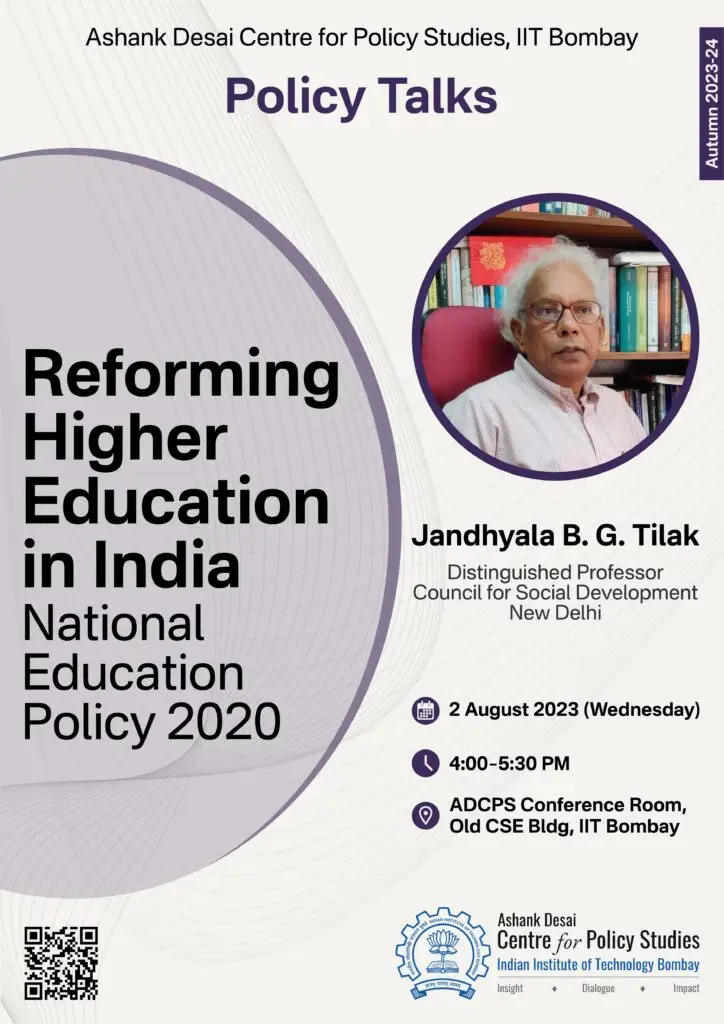Abstract: After decades of neglect, higher education in India has begun receiving public attention. Apart from continuing problems relating to quantitative expansion, quality, and inequalities, the system also faces serious challenges with a shortage of faculty, public funds, governance, and a rapidly growing commercially motivated private sector. Reforming higher education has been on the public agenda for quite some time, and many committees and commissions have recommended a variety of reforms. The National Education Policy 2020 comes with a large set of sweeping reforms, some of which are hailed by many as path-breaking and some as detrimental to the growth of a strong, vibrant, and equitable higher education. Some proposals have already been introduced, some are about to be implemented, and some are at the stage of discussions and deliberations. The need for a search for new innovative measures is also being realised. Focusing on the recent reform initiatives, this lecture presents a critical review of some of the recent attempts.
Speaker: Professor Jandhyala B. G. Tilak is a former Professor and Vice-Chancellor of the National University of Educational Planning & Administration and ICSSR National Fellow. He is currently a Distinguished Professor at the Council for Social Development, New Delhi. He is also an Adjunct Professor at the Indian Institute of Technology Hyderabad and a Visiting Professor at Kautilya School of Public Policy, GITAM, Hyderabad.
Prof. Tilak has authored several books, including Economics of Engineering Education (Routledge, 2023, in press), Higher Education, Public Good and Markets (Routledge, 2018), Education and Development in India: Critical Issues in Public Policy (Springer/Palgrave Macmillan, 2018), Dilemmas in Reforming Higher Education (Orient BlackSwan 2018), Economics of Inequality in Higher Education (Sage, 1987), Education for Development in Asia (Sage, 1994), and more than 300 research articles in journals of high repute. He has served as the Editor of the Journal of Educational Planning and Administration and is on editorial boards of several national and international journals. He has also served on several committees in education constituted by the Government of India and as a short-term consultant for international organizations, including UNESCO, UNDP, and UNICEF.
